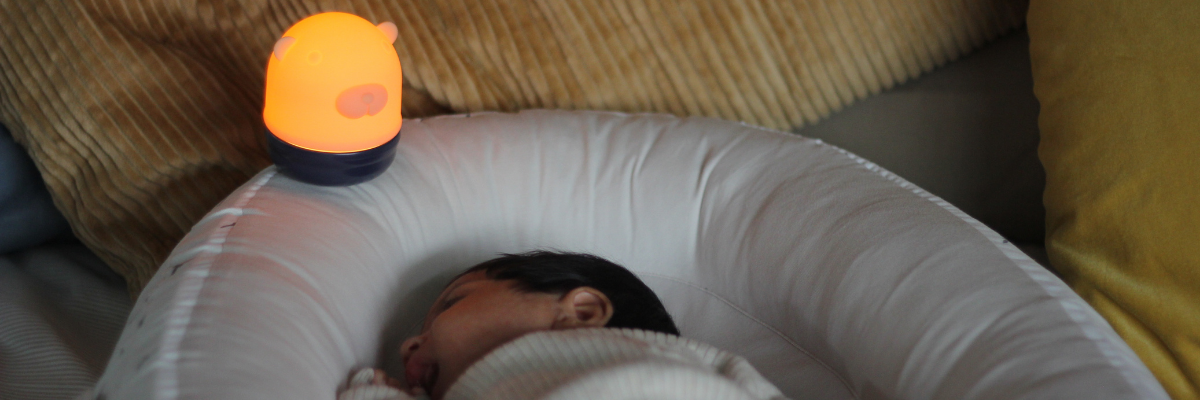
Every child will experience a nightmare or night terror at some point. But as a parent, how can you tell the difference between a nightmare and night terror? And what can you actually do about them? We’ve come up with some answers for you!
Nightmares
While we are sleep, our brains process the stimuli and impressions that we have experienced throughout the day. Sometimes, children only need to hear or see a few words or images for those words or images to reappear later on in their dreams (or nightmares).
So how can you recognise when a nightmare is happening?
When they are having a nightmare, your child is likely to wake up, crying with fright. They will be aware that they are awake. Depending on how old they are, your child may be able to tell you why they woke up feeling sad. In fact, from the age of 3 upwards, children will be able to express what has been going on in their dreams and so it becomes a little easier to talk to them.
As a mum or dad, what can you do?
- Make sure you take your child and their fears seriously.
- Comfort your little one and try to reassure them.
- Use a cute night light to reassure them during the night.
- Make sure that you stay calm yourself so that your child feels safe.
- Try to distract your child and talk about something nice or fun for a while or read a book.
Night terrors
Scientist believe that night terrors (also known as pavor nocturnus) happen when we experience a poor transition from one sleep phase to another. It is generally thought that the brains of children who experience night terrors are only partially awake, which is why your child is likely to be unaware of what is happening.
How can you recognise if your child is having a night terror?
Your little one suddenly starts screaming or crying at night and is inconsolable. They appear to be awake, but when you communicate with them, they don't respond. You can't comfort, wake up or soothe your little one. The day after it happens, they don’t remember anything about the incident.
What can you do about it?
Does your child suffer from night terrors? It’s hard to hear, but unfortunately there's not much you can do. The best thing you can do is to just let your child get on with it and wait and see. If you try to wake your little one up, they may begin to cry, scream or roar even louder! This might seem a very scary thing to do, but the day after it has happened your little one won’t be able to remember a thing about it and it doesn’t put your child at any risk.
Tip: try not to talk about the incident after it has happened as this might make your child afraid to go to sleep.
How can you prevent nightmares and night terrors?
Unfortunately, it’s just not possible to completely stop nightmares and night terrors from happening. However, you can follow these hints and tips and they will hopefully help to reduce how frequently they happen.
- Make sure that your child’s room is tidy. This way you can make sure that their cute cuddly toys don't suddenly turn into scary shadows.
- A soft nightlight can be a familiar sight for them and will reassure your child if they wake up.
- Enjoy a quiet moment with them before bedtime. Reading a book together or even just having a chat about the day that they have had is a great way to de-stress and will give your child a sense of security. Having an evening ritual in place is the ideal way to do this!
- Try and create a safe sleeping environment so your child can't hurt themselves.
- If you notice that the night terrors always take place at the same time, it might help to wake up your child half an hour before it normally happens. This way, they can begin a new sleep phase and it may help to prevent the night terrors.
Are you worrying about your child's night terrors? Why not visit your family doctor or a paediatrician? They will often have some useful tips for you and can help to reassure you.
You can see that nightmares and night terrors are two different phenomena that can disrupt your child's sleep, but a calm evening ritual can help to prevent them. Discover our 5 top tips for a cosy bedtime routine!

